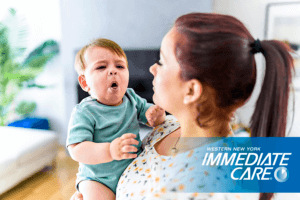
What is RSV?
According to the CDC, respiratory syncytial virus (RSV) is a common respiratory virus that can affect people of all ages. In older children and adults, it causes mostly upper respiratory symptoms (colds), but it can cause a serious infection in the lungs (bronchiolitis or pneumonia) among infants and adults with serious underlying medical problems.
Common Symptoms of RSV:
These symptoms usually appear in stages and not all at once. In very young infants with RSV, the only symptoms may be irritability, decreased activity, and breathing difficulties.
If my infant gets RSV, can my other children get it?
Yes, RSV is highly contagious. It is extremely important to prevent its spread to others.
How to prevent RSV:
There are steps you can take to help prevent the spread of RSV. Specifically, if you have cold-like symptoms you should:
For more information on RSV visit the pages linked here:
January 2019